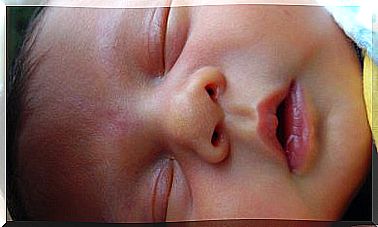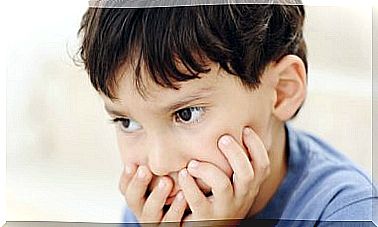Sleep And Eating In Adolescents

Did you know that the National Sleep Foundation advises teens to sleep between 8 and 10 hours a day? According to the data shown by the research that we will mention along these lines, 68.8% sleep less time.
The main reasons are the delay in going to bed due to time spent watching television or using the mobile phone as well as nightlife. In addition, there is a relationship between sleep and eating in adolescents, as we will see below.
In this case, it is essential that young people always try to go to sleep at the same time and turn off electronic devices at least 2 hours before. The blue light that they give off alters the secretion rhythms of melatonin, a hormone responsible for inducing sleep, which is why, when secreted later, it will influence rest, making them feel tired the next morning. In turn, it will negatively affect your diet.
In addition, not only the duration of sleep is important, but the quality must be assessed. That is to say, that the sleep is restful and that they get up in the morning with enough energy to face school tasks.

Influence between sleeping and eating in adolescents
First of all, it is important to understand the reasons for dietary changes due to lack of sleep. On the one hand, circadian rhythms are altered, especially those related to hunger and satiety.
An increase in hunger and a decrease in satiety have been observed, generated by a greater production of the hormone ghrelin in the blood and a decrease in leptin. It is also believed that by getting up earlier to go to school, the window to eat is wider.
On the other hand, the development of the prefrontal cortex is modified and a lack of brain recovery takes place that occurs while we sleep. It negatively affects your memory and ability to concentrate.
Intake, dietary quality and sleep
In terms of diet, insufficient sleep creates a greater craving for sweet cravings and high-fat foods such as chocolate, pastries, and crackers.
It also makes teens eat more fast foods like hamburgers and pizzas. Also, they tend to drink more sodas and sugar tea. As a consequence, the nutritional quality is worse, as your intake of fruits and vegetables decreases. The same is true for milk and yogurt.
Regarding the time spent sleeping, a study carried out in 118,468 Koreans between 12 and 18 years old observed that spending less than 6 hours translates into a consumption of soft drinks and sweets equal to or greater than 5 days a week.
More recently, The CASPIAN-V study, published in 2020, found that the consumption of cheese, fast food, sugar and tea decreased for every hour they increased to sleep.
This phenomenon translates into a consumption of about 129 kilocalories more than those who reach 8-10 hours sleeping. They are energy dense foods high in simple carbohydrates and unhealthy fats.

Negative health consequences of the relationship between sleep and diet in adolescents
In conclusion, the Body Mass Index (BMI) increases the same as body fat, leading to overweight and obesity. It can be explained due to the increased exposure to television just before going to sleep and the sedentary lifestyle.
This same fact is what leads to this increase in the intake of salty snacks as a distraction, which is related to the type of advertisements broadcast. In turn, insulin resistance is generated that alters blood glucose levels. As a result, the risk of type 2 diabetes is higher.
We would like to emphasize that, as we grow older, the hours to sleep decrease. In addition, people who live in large cities, with a moderate and chronic degree of stress, as well as those with a low socioeconomic level, tend to sleep little.
In short, as a result of the vicious cycle produced between sleep and eating in adolescents, young people have little energy to face the activities of their daily life and it affects their mood. They become more irritable and their motivation drops.










